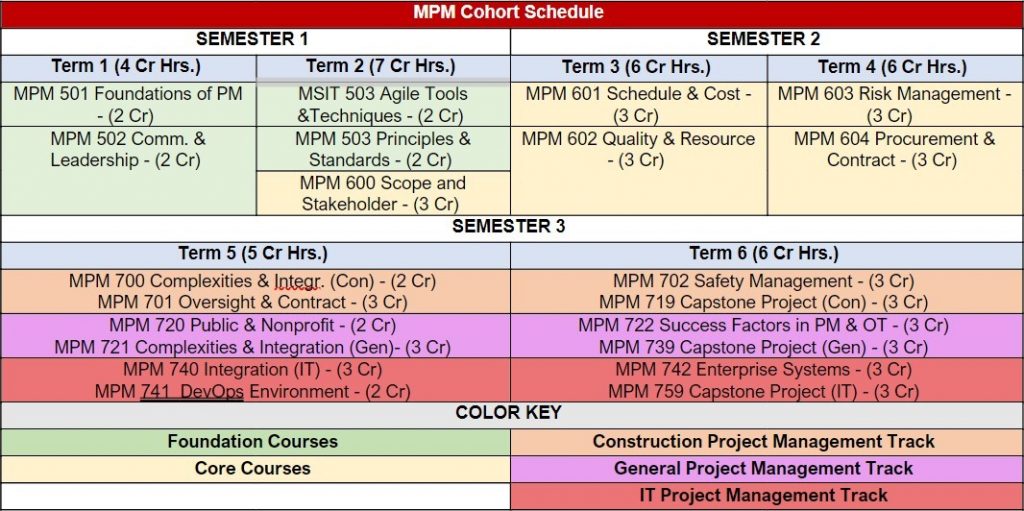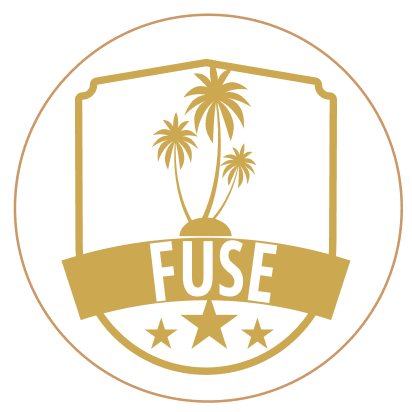Degrees & Programs
Our curriculum was created based upon the needs of the professions and designed with the student in mind.
School of Sustainability

FUSE’s Master of Sustainability aims to provide professionals of different backgrounds with an understanding of the complex and evolving concepts of sustainability, and the skills necessary to implement effective and sustainable practices in various contexts.
Total Terms:
4 Terms
School Program:
MS
Total Students:
60+
Description
FUSE’s Master of Sustainability (MS) is an 18-month, fully online program designed to empower professionals from diverse backgrounds with the knowledge and skills to lead in the field of sustainability. Whether your interests lie in environmental management, corporate innovation, energy policy, or water security, our program offers four specialized tracks—Environmental Sustainability, Corporate Sustainability and Innovation, Energy Security and Policy, and Water Sustainability and Security—to equip you with practical tools to tackle global challenges.
This interdisciplinary curriculum blends academic rigor with applied learning, culminating in a capstone project that addresses real-world sustainability issues. With asynchronous delivery and affordable tuition, FUSE’s MS program offers the flexibility working professionals need, without compromising on quality. Learn from faculty who are both scholars and seasoned practitioners in environmental governance, sustainable development, energy innovation, and more.
Explore what it means to build a more sustainable future—with FUSE’s MS in Sustainability, your impact starts here.
Objective 1: Students will gain foundational and advanced knowledge in sustainability and its application across sectors.
Intended Outcome: Graduates will demonstrate their understanding by designing and implementing sustainability solutions through a comprehensive capstone project tailored to their specialization.
Objective 2: Students will develop leadership and strategic thinking skills to drive sustainability initiatives.
Intended Outcome: Students will be prepared to lead sustainability efforts across public, private, and nonprofit sectors, with the academic foundation to pursue certifications or further professional advancement in their chosen field.
Students must be formally accepted into the MPM program and meet all graduation criteria outlined in this Catalog. Matriculated students must successfully complete the total of 34 credit hours listed above and maintain a 3.0 grade point average to graduate. If the student falls below a 3.0 grade point average, the student will be required to retake the most recent courses and to pay additional tuition. Under such circumstances, the most recent grades achieved are counted toward the cumulative GPA. Students may repeat each course only once. Students who have not been able to raise their grade point average to at least a 3.0 after re-taking a course will be dismissed from the program. Graduation is not automatic upon completion of requirements. All students are required to complete and submit an Application to Graduate to the President, along with the requisite fees.

What Will You Learn?
For successful completion of the program, academic coursework and a capstone report. The courses can be broken down into three foundational, four core, and three track-specific concentration/specialization courses determined by one of the three tracks a student can take: General, Construction Management, and Information Technology. The capstone report is intended to depict the dynamic terrain of managing real-world projects and is completed progressively both to utilize and reinforce the content mastered throughout the program.
![]() Meet the minimum educational and PM experience requirement to sit for the prestigious PMI Project Management Professional (PMP) certification exam.
Meet the minimum educational and PM experience requirement to sit for the prestigious PMI Project Management Professional (PMP) certification exam.
![]() Rigorous coursework that simulates the complexity, dynamics, and global setting of organizations equipping graduates with knowledge, tools, and skills for managing projects.
Rigorous coursework that simulates the complexity, dynamics, and global setting of organizations equipping graduates with knowledge, tools, and skills for managing projects.
![]() Program participants apply the foundational and core skills of the project management profession in a real-world context.
Program participants apply the foundational and core skills of the project management profession in a real-world context.
![]() Meet the minimum educational and PM experience requirement to sit for the prestigious PMI Project Management Professional (PMP) certification exam.
Meet the minimum educational and PM experience requirement to sit for the prestigious PMI Project Management Professional (PMP) certification exam.
![]() Progressive completion of a capstone report applying the content mastered.
Progressive completion of a capstone report applying the content mastered.
![]() The curriculum has been designed by “pracademics,” individuals having both academic and professional experience.
The curriculum has been designed by “pracademics,” individuals having both academic and professional experience.
Certification
Graduates will have the training necessary to obtain the experience required by PMI and the knowledge base necessary to then sit for the Project Management Professional (PMP) credential awarded by the Project Management Institute (PMI). This is an industry-accepted credential recognized globally.* Currently, over 500,000 certified project management professionals in 175 countries are managing complex projects. PMI requires individuals to attain a certain level of project management experience before being permitted to take the PMP exam.
* Business credentials are trademarks of their respective organizations. The specific requirements and fees associated with these designations are available through the issuing organizations. FUSE cannot guarantee passage of any of these exams and individual students should prepare independently before attempting the assessments.
Selected Courses From This Program
Semester 1
MS 500 Communication and Leadership in Sustainability : (3 credits)
MS 502 Project Management in Sustainability: (3 credits)
MS 501 Foundations of Sustainability: (3 credits)
MS 600 Sustainability Governance, Ethics, and Policy : (3 credits)
Semester 2
MS 601 Sustainable Development and Globalization : (3 credits)
MS 700 Components/principles of Environmental Sustainability : (3 credits)
MS 720 Sustainability in Business : (3 credits)
MS 740 Global Energy Policy and Governance: (3 Credits)
MS 760 Transboundary Water Management and its Challenges : (3 credits)
MS 701 Water and Energy Nexus: Conservation Planning and Management : (3 Credits)
MS 702 Environmental Governance, Law and Policy : (3 Credits)
MS 721 Sustainable Leadership : (3 Credits)
MS 722 Core Components of Sustainability and Innovation : (3 Credits)
MS 741 Energy Technology and Innovation : (3 Credits)
MS 742 Energy Storage and Grid Integration : (3 Credits)
MS 761 Water Economics : (3 Credits)
MS 762 Geo and Hydo Politics of Water Management : (3 Credits)
Semester 3
MS 703 Environmental Data Analysis and Risk/Impact Assessment : (3 credits)
MS 704 Climate Change Science and Policy : (3 credits)
MS 723 Sustainable Performance Measurement: (3 credits)
MS 724 Sustainable Innovation : (3 credits)
MS 743 The Science of Energy Sustainability: (3 credits)
MS 744 Renewable Energy Technology: (3 credits)
MS 763 Integrated Water Resource Management: (3 credits)
MS 764 Water and Climate Change: (3 credits)
MS 719 Capstone in Environmental Sustainability : (4 credits)
MS 739 Capstone in Corporate Sustainability and Innovation : (4 credits)
MS 759 Capstone in Energy Security and Policy: (4 credits)
MS 779 Capstone in Water Sustainability and Security : (4 credits)
Telecommunication/Infrastructure Specialization
MS-ICT662 ICT Technical Foundations: (3 credits)
MS-ICT672 Cloud Computing: (3 credits)
MS-ICT682 Wireless Technology: (3 credits)
MS-ICT692 Network Management, Policy, and Operation: (3 credits)
MS-ICT697 Network Security: (3 credits)
MS-ICT700 Capstone in Telecommunication and Infrastructure: (3 credits)
SOFTWARE ENGINEERING (SE). Specialization
MS-SE663 Foundations of Programming Language and Software Development Concepts: (3 credits)
MS-SE673 Web and Mobile Application Development: (3 credits)
MS-SE693 Software Development and Testing: (3 Credits)
MS-SE693 Working on Enterprise Applications: (3 Credits)
MS-SE698 Open Source Software Architecture: (3 Credits)
MS-SE700 Capstone in Software Engineering: (3 Credits)
Florida University Southeast (FUSE) is licensed by the Florida Commission for Independent Education, License #5555. Inquiries may be directed to the Commission at 325 West Gaines Street, Suite 1414, Tallahassee, FL 32399-0400, phone: (888) 224-6684, email: cieinfo@fldoe.org. For FUSE compliance-related inquiries, please contact compliance@myfuse1.education.

1375 Gateway Blvd, suite 38
Boynton Beach, FL 33426,
USA
561-440-0253
info@myfuse1.education
